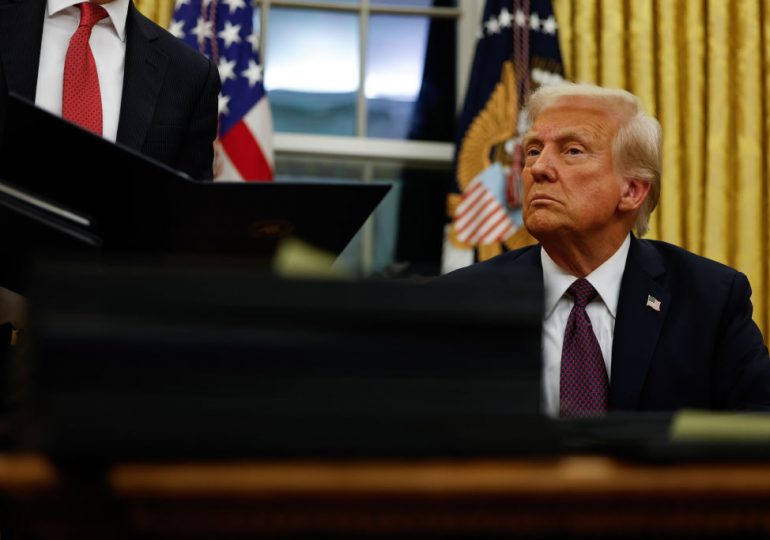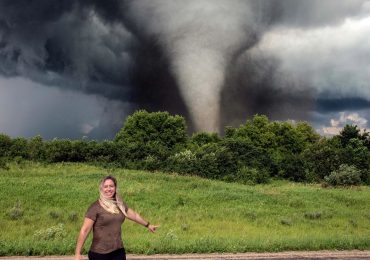President Trump’s decision to withdraw the United States from the World Health Organization (WHO) is extremely regrettable. Quite simply, less funding will weaken the ability of the WHO to continue to do the life-saving work to the extent it does, and this will be especially true in poorer, more disadvantaged countries.
[time-brightcove not-tgx=”true”]
The United States is the single biggest contributor to the WHO, providing nearly $1.3 billion dollars in the two years to the end of 2023. Annually the U.S. contributes to approximately 15% of the funding WHO receives. In a time of multiple crises and emergencies, global aid agencies need more, not less funding (the WHO has recently made an appeal for $1.5 billion for health emergencies in 2025).
The WHO relies on voluntary contributions from countries. For example, last year the U.S. voluntarily contributed approximately $70 million to detect and respond to acute health emergencies and $76 million on improving access to essential health services globally. While the potential impacts of this decision will be felt by those in countries most vulnerable and at-risk, the U.S. also benefits from participation in the WHO.
It’s also worth remembering that preventing the next pandemic needs international co-operation. Protecting the world from infectious disease outbreaks includes ensuring that low- and middle- income countries have the resources to prevent, identify and respond to early cases and local outbreaks. This in turn helps protect the health and biosecurity of any given country, including the U.S.
Read More: What Leaving the WHO Means for the U.S. and the World
Ceasing negotiations for the Pandemic Agreement and amendments to the International Health Regulations—something the Executive Order also states—is particularly worrying since H5N1 cases continue to grow across the U.S., and although the risk to the general public is currently low, H5N1 nevertheless presents a credible pandemic threat. In 2024, Mpox was reclassified as a Public Health Emergency of International Concern (PHEIC) by the WHO, and the U.S. has provided crucial funding ($22 million since March 2024) to support the delivery of vaccines and capacities to respond to outbreaks and prevent them from spreading.
From HIV to diabetes, from reducing smoking rates to improving workplace health and safety, WHO guidelines and expertise drive a lot of public health knowledge and actions around the globe, including the Americas. Many of these benefits are perhaps less direct and obvious for the U.S., compared to the benefits to low and middle income countries, but they are significant nonetheless. For example, the WHO is involved in producing international guidelines and advice on managing the response to disasters, including the health effects of particulate matter and hazardous emissions from wildfires. The consequences of this decision are more than a matter of funding. U.S. scientists and health workers provide vital expertise and knowledge, through overseas deployment and through U..S-based WHO Collaborating Centers. Many will have spent their careers specialising in various aspects of global health.
There is another deeper and more insidious consequence of this decision, and the manner in which it was communicated. The Executive Order claims, without cause or evidence, that there has been an “inability to demonstrate independence from the inappropriate political influence of WHO member states.” What’s concerning is that this rhetoric, and the withdrawal from the WHO, could be used by some political and anti-science interests to feed the narrative that scientific and health organizations are not to be trusted, or are not effective or even necessary. The U.S. Centers for Disease Control has been the target of unsubstantiated claims that it is “the most political CDC in history” and has “manipulated data.” Indeed, the last-minute pardoning of Anthony Fauci, designed to protect him against potential “revenge,” shows the extent to which some public health scientists are being mistrusted, maligned and targeted with misinformation. Such unsupported claims around a lack of independence or integrity of health authorities are precisely what helps to sow seeds of distrust amongst the public—a 2023 Pew Research Centre survey found that trust in scientists in the U.S. has dropped by 14% since 2019. Less than 6-in-10 Americans now feel that science has a mostly positive effect on society.
Confidence in vaccines is also dwindling in the U.S. and across the globe, despite the fact they save up to an estimated 5 million lives each year around the world. The WHO plays a key role in global vaccine supply. Polio is on the brink of eradication—however, reduced funding and resources threatens to hamper this effort (the US contributed nearly $56 million to the WHO’s global efforts to eradicate Polio this past year).
It’s imperative that President Trump reconsider this decision to withdraw the United States from the WHO. With ongoing conflicts in Ukraine and beyond and climate related emergencies including wildfires and other extreme weather events, the WHO serves as important a role now as at any point during its 76-year history. Because, ultimately, making America healthier and making the world healthier are not mutually exclusive goals.
Leave a comment








